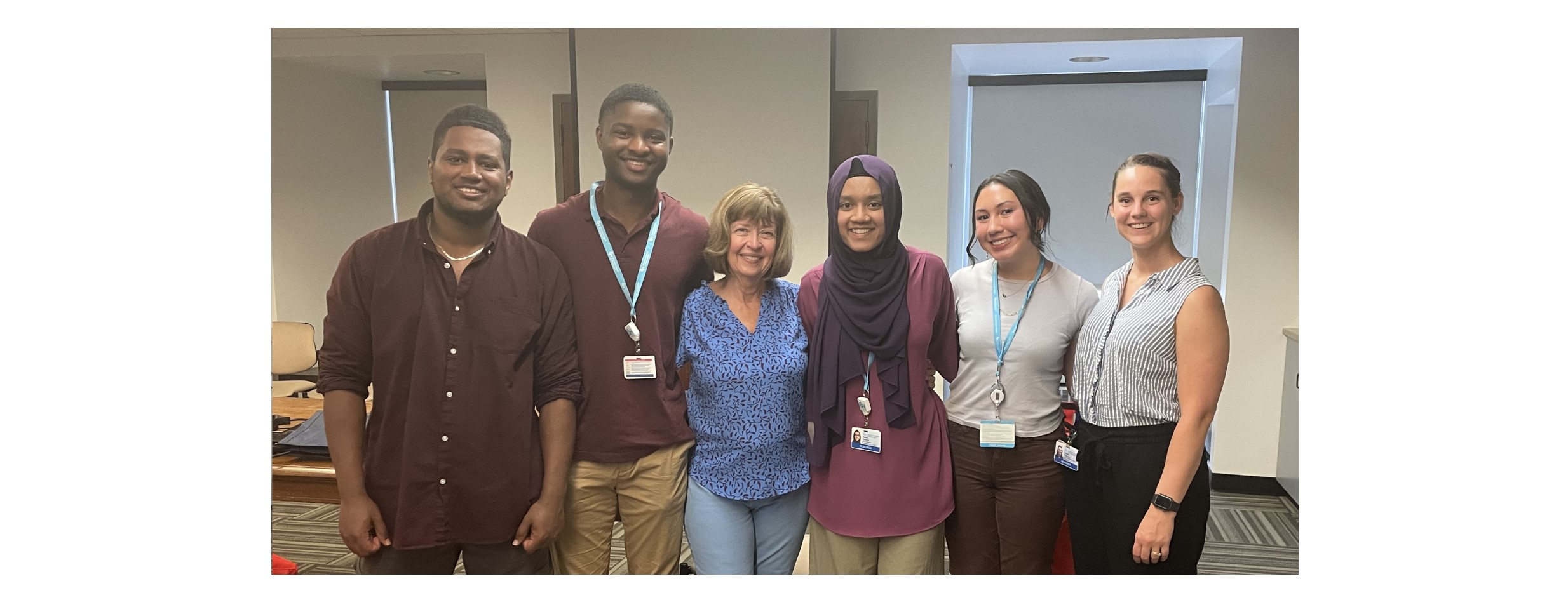
Left to right: Abenezer Lemma ('24), Olakanmi Adio ('26), Victoria Vetter, M.D., M.P.H., Maliha Rahman ('25), Madeline Hatola ('26), and Lindsey Flanagan, M.P.H.
Olakanmi, Madeline, and Maliha conducted research this past summer on strategies to prevent sudden cardiac death in children under the guidance of Dr. Victoria Vetter, a pediatric cardiologist at the Children’s Hospital of Philadelphia (CHOP) and the medical director of Youth Heart Watch. This research was supported by the Penn Undergraduate Research Mentoring Program. Below Dr. Vetter, Olakanmia, Madeline, and Maliha reflect on this research experience.
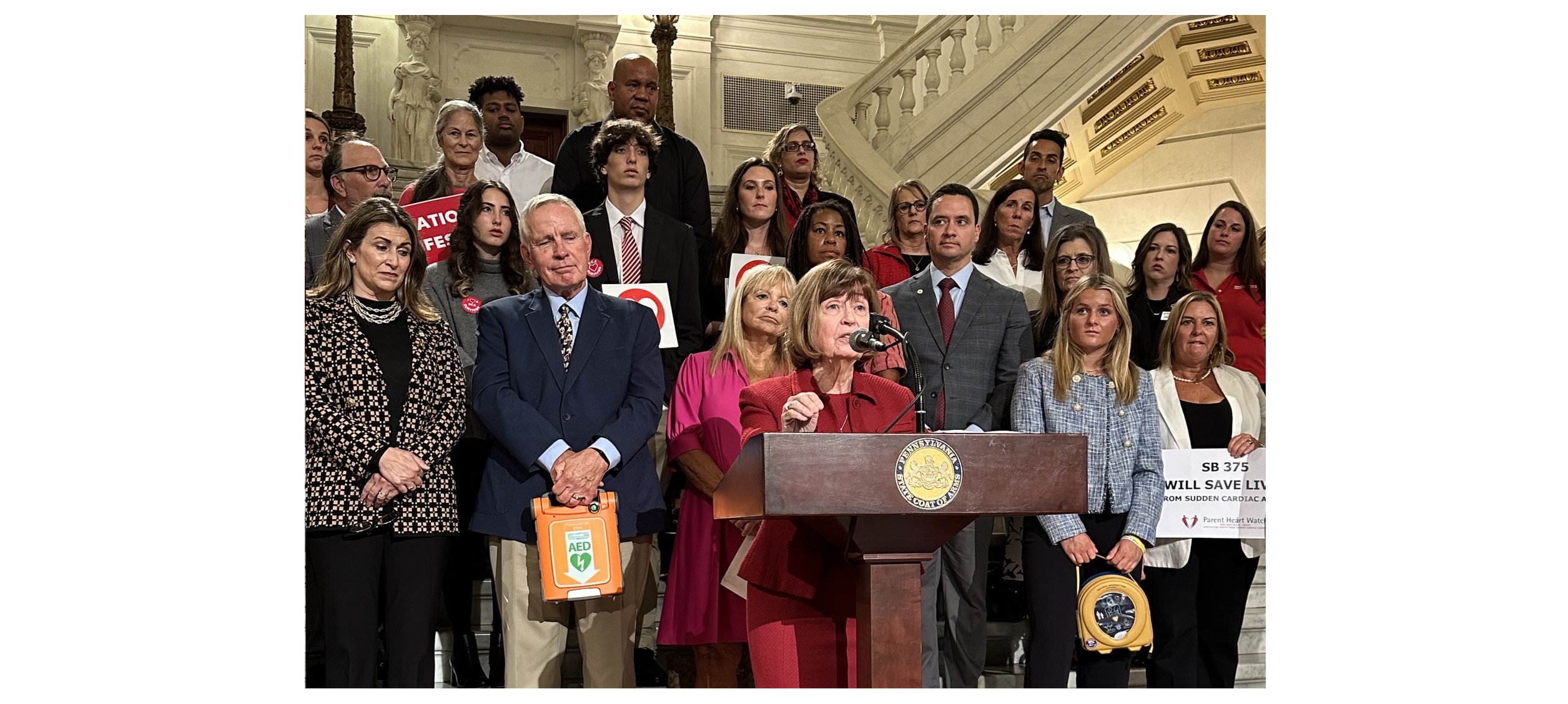
Dr. Vetter speaking at the Press Conference for Senate bill 375, where the students' research was used to raise awareness about the AED needs across the state and advocate for the funds needed to support the bill.
The mission of Youth Heart Watch is to facilitate prevention of Sudden Cardiac Death in children and adolescents through community prevention initiatives, education, research, and advocacy. Our Heart Safe Schools and Community initiative is the cornerstone of our program. We have worked with students since we began our Sudden Cardiac Arrest Prevention Program in the early 2000’s and with PURM for the past 6 years with 15 UPenn PURM students participating over that time interval. Our research has always focused on the prevention of sudden cardiac arrest and death, both primary (heart screening) and secondary prevention (cardiopulmonary resuscitation (CPR) and automated external defibrillators (AEDs).
This summer’s project was to determine the number of additional AEDs needed in schools in the state and to help secure support and funding for this program. The students were not deterred by the bureaucratic aspects of this data collection or the rather complex and, at times, obscure nature of the data presentation. They were fearless and relentless in their pursuit of information about AEDs, calling the state officials when they couldn’t find what they needed, producing amazing results. Our aim was not only to provide objective data for the legislature but to investigate more deeply with regard to inequities in AED placement and use by looking at regional distribution and at distribution by socioeconomic factors with some important findings from the students’ research. We were able to take this information to the State Capitol in Harrisburg on September 19, discuss Senate bill 375 and provide real data on AEDs from the PURM students’ research to legislators and to the Governor. - Victoria Vetter, M.D., M.P.H.
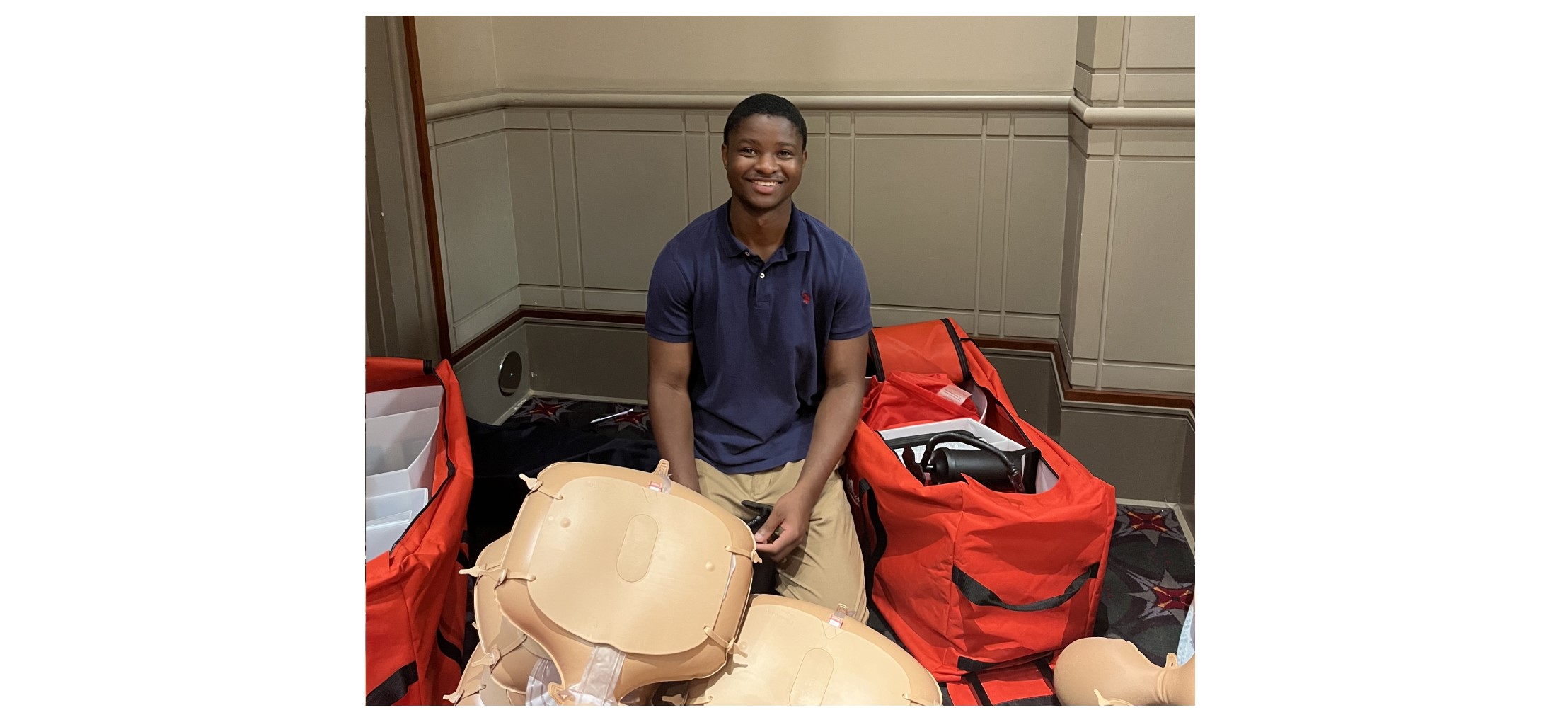
Olakanmi Adio ('26) is a student in the College of Arts and Sciences with an interest in pursuing medicine in the future. Read about his highlights from conducting research below:
Throughout my ten-week tenure, I learned to appreciate the multifaceted aspects of healthcare, specifically in cardiology. I was able to view how important patient interaction was to medicine, from electrophysiologists encouraging their patients after a procedure to cardiologists actively listening to their patients' questions and concerns. This experience made me certain of my interest in medicine as I saw firsthand the positive impact healthcare workers had on the community.
Most importantly, I was able to build invaluable connections with the clinical coordinators, fellow research students, and my mentor. From the beginning, my mentor's willingness to listen to my questions, regardless of how complicated or basic they might have been, established an environment of open dialogue. Observing her interactions with patients highlighted the significance of effective communication in fostering trust and collaboration. As I move forward in my research and professional endeavors, I am grateful for the guidance my mentor provided, knowing that her influence will continue to shape my growth as a researcher and as an individual. - Olakanmi Adio
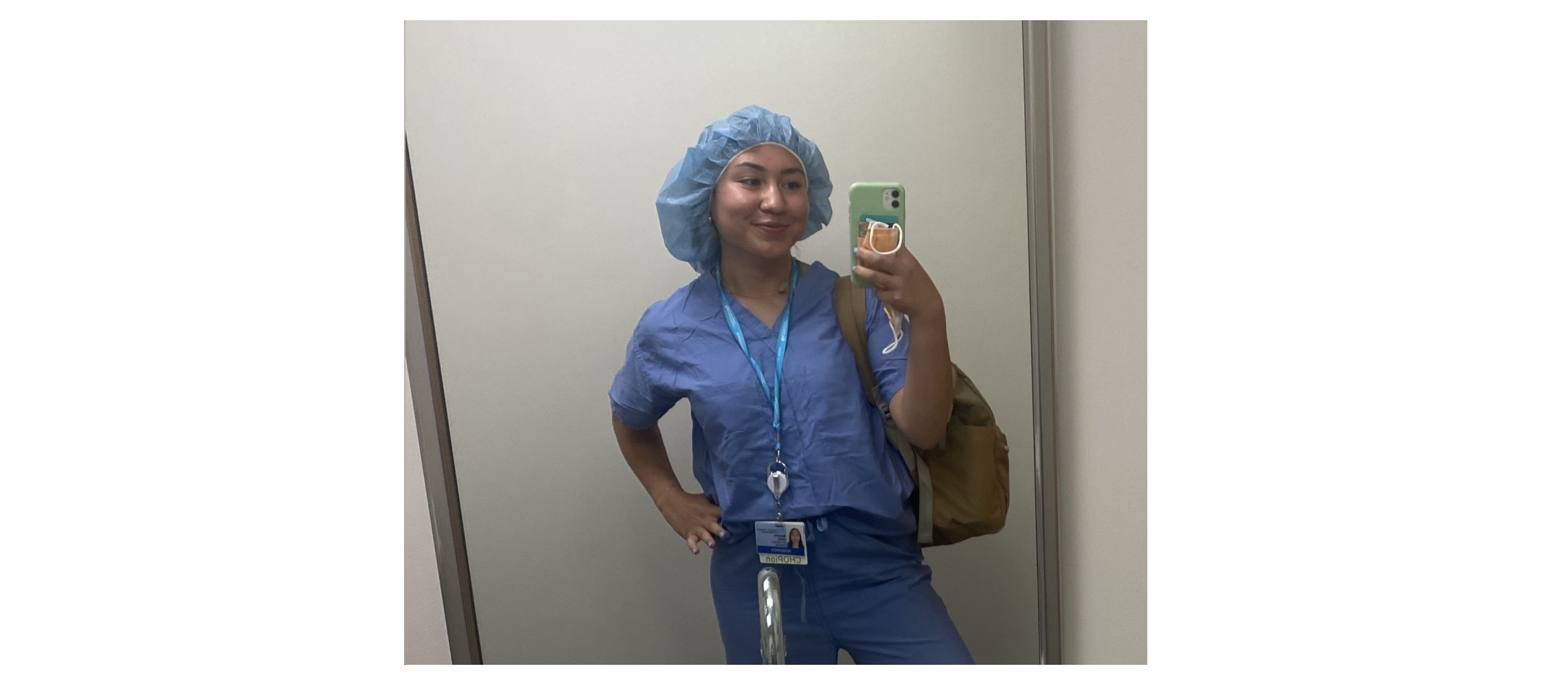
Madeline Hatola ('26) is majoring in Neuroscience and minoring in Urban Education. Read about her takeaways from research below:
My summer with Dr. Vetter and Youth Heart Watch presented constant opportunities to challenge my abilities and acquire new skills. I greatly improved my proficiency using Microsoft Excel, learned how to build databases on REDCap, practiced reading EKGs, earned my CPR certification, and even helped lead CPR trainings all throughout Philadelphia. While these skills will all undoubtedly come in handy as I continue to take STEM classes at Penn that require research and as I further delve into the healthcare field, I think the most valuable lesson I learned was about the culture of research as a whole. As someone who once thought that research was solely about discovery by an individual and somewhat of an independent, self-promoting process, I now see that it is quite the opposite.
The best research takes place through collaborative processes, a diverse team, a range of perspectives. My 10 weeks with Dr. Vetter and the Youth Heart Watch team showed me this firsthand. The office was an extremely collaborative, supportive environment where my co-interns and I were constantly hopping back and forth into each other’s cubicles to give advice. Lively discussion was always encouraged, and my questions were genuinely valued by the team. Before our project areas were finalized, we spent weeks discussing the most effective questions to ask that, what variables to focus in on, how to best present our data, and what message we hoped to send with our final posters. This ongoing discussion and basis of collaboration not only maximized my understanding of my project and pushed it to be more nuanced and well thought-out, but also made it so that I genuinely looked forward to showing up to work every day and being part of the team.
As I reflect on my experience as a whole, one of my largest takeaways is that true research is a selfless process. Hours of hard work put in so that the public has access to clear, objective knowledge and can then make informed decisions. The true power of research lies in its ability to underscore and enact social change. -Madeline Hatola
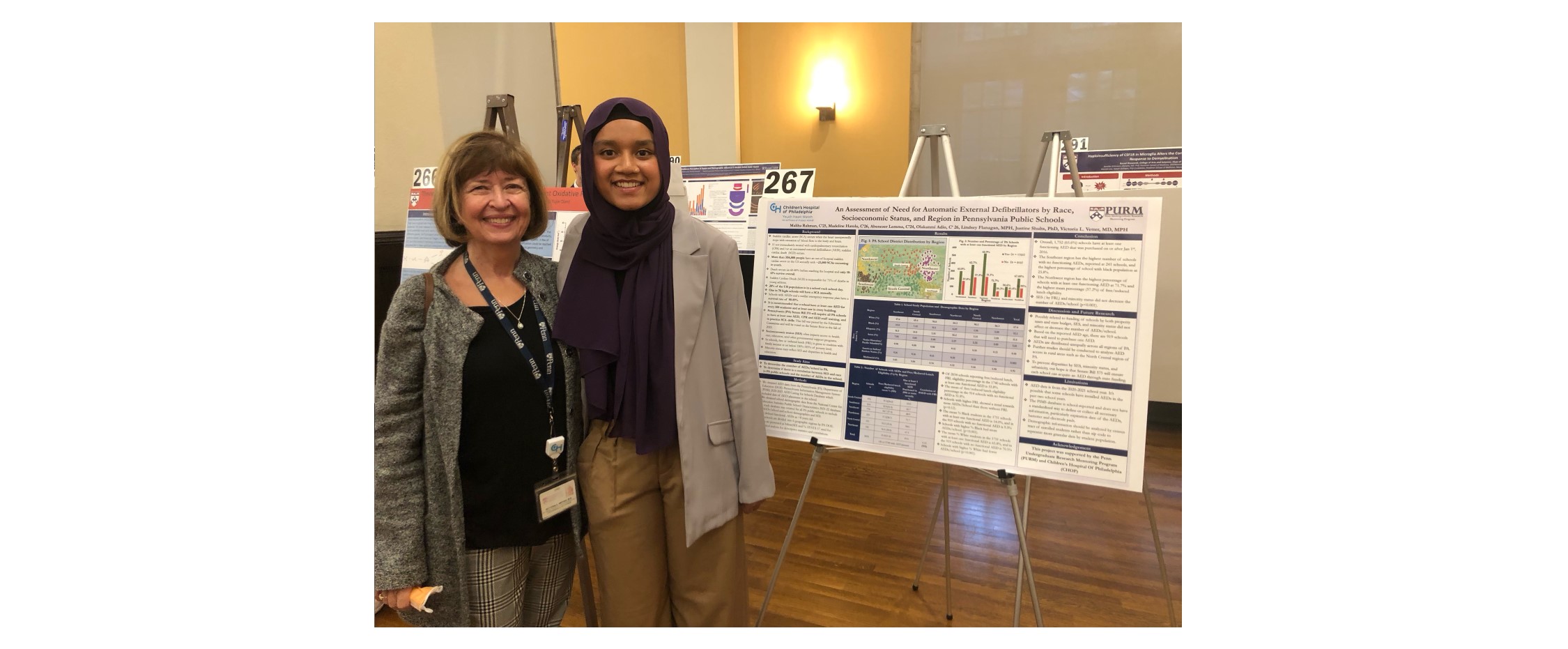
Maliha Rahman ('25) is a Health and Societies major with an interest in public health. Read about her research experience below:
This kind of research interests me in particular because of its public health focus. As a Health and Societies student with a concentration in public health, research on improving health outcomes in the real-world interests me greatly. It is important to know which schools in the state are prepared for a possible sudden cardiac arrest and which are not. It is also important to try and figure out what other factors may be leading to some schools having the right resources to acquire CPR training and AEDs. Looking at public health situations with this broader perspective allows for a more nuanced understanding of how things come to be.
I feel like this experience has furthered my love for the topic and introduced me to so much more knowledge. I feel like I have a more real-world perspective of some of the topics I often encounter in my Health and Societies classes. I never considered continuing research past undergrad. Working with Dr. Vetter made me realize that many doctors conduct a variety of research in their careers. It has made me start to consider possibly getting my MPH (Master of Public Health) along with my MD. - Maliha Rahman
Interested in reading more first-hand accounts about undergraduate research? Check out the other experiences featured on our Student News Page and Social Media!
Related Articles
Research is About Continual Growth
04/22/2024
Heejoon Shin ('26), a Chemistry major, developed contrast agents to improve the use of biosensor for cancer detection under the mentorship of Dr. Ivan Dmochowski (Department of Chemistry). The research was supported by the Penn Undergraduate…
Two Penn students awarded a 2024 Paul & Daisy Soros Fellowship for New Americans
04/17/2024
Min Jae Kim is pursuing an M.D./Ph.D. in the Perelman School of Medicine, and Zijian (William) Niu is a fourth-year in the College of Arts and Sciences.
Penn team of four undergrads awarded the Davis Projects for Peace grant
04/15/2024
The College of Arts and Sciences students lead a community health care project in Philadelphia.